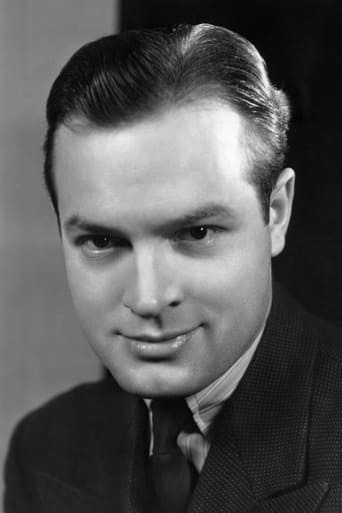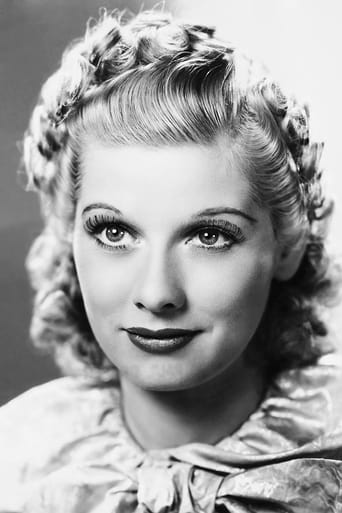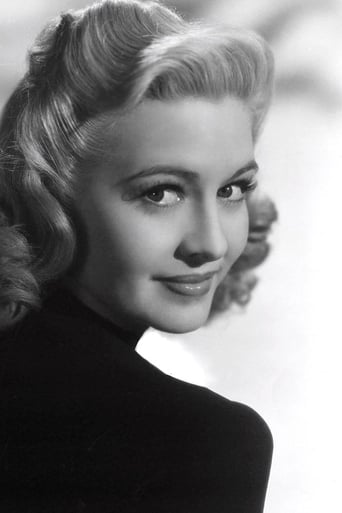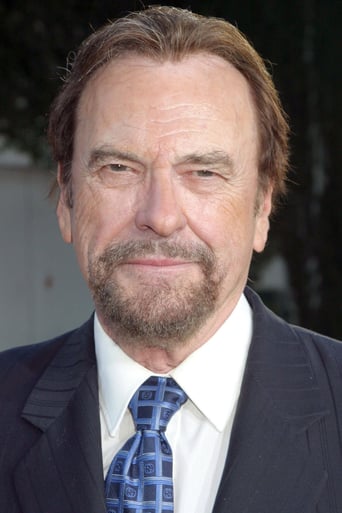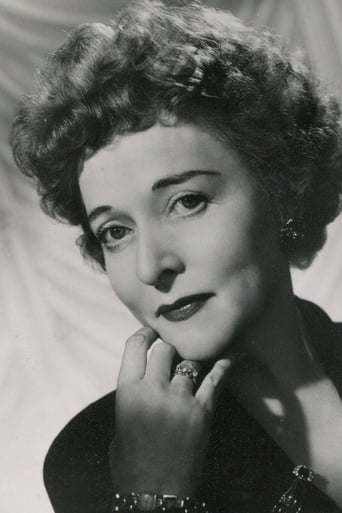Konterr
Brilliant and touching
Comwayon
A Disappointing Continuation
Erica Derrick
By the time the dramatic fireworks start popping off, each one feels earned.
Cheryl
A clunky actioner with a handful of cool moments.
JohnHowardReid
This movie seems to have sparked an almost even mixture of highly favorable and downright negative reviews. I'm afraid I agree with the negative brigade. After the box office disaster of "Beau James" (1957) in which Hope invested his own money and literally lost his shirt, he seems to have taken any assignment that came along. (Personally, I thought "Beau James" was an absolutely terrific movie. I loved it, but hardly anyone agrees with me). Anyway, for whatever reason, I think most of us would agree that Bob Hope made some very poor films in the 1960s, starting with the verbose but unfunny "The Facts of Life"; continuing with "Bachelor in Paradise" (which starts amusingly, but the promise of its sprightly opening scenes is unfortunately not realized); recovers a lot of momentum with "Road to Hong Kong" (even though it's one of the least amusing of the "Road" pictures); then really plumbs the depths with "Critic's Choice". For me, it's a movie with no virtues at all. The characters are not just unsympathetic, they're thoroughly unpleasant. As a result, everything they do and say is negative. Maybe it worked well on the stage, where the audience is less involved, less close to the venal, utterly selfish, self-promoting characters. Maybe?
SimonJack
Mention the name Lucille Ball, and what comes to mind for most of us is the zany character in the long-running 1950s TV comedy show, "I Love Lucy." But, I wonder if Lucy started out with a wish to be a comedienne, or if she had her eyes on any other fields of stage or screen. Comedy was part of her early roles, but she also had roles in which she sang and danced ("Dance, Girl, Dance" of 1940). And there can be no doubt about her acting ability from such dramatic and suspense films as "Valley of the Sun" and "The Big Street" in 1942; or "The Dark Corner" in 1946; or "Lured" in 1947. On the other hand, there's little doubt about Bob Hope's aspirations. From his earliest days in vaudeville, Hope was a comedian, and he would always be a comedian. For all his kidding aside about earning as Oscar, Bob knew that he had little chance because Oscar very rarely went to a comedian. He even made his overt desire for an Oscar a part of his long- running comedy routines, and it was sure to get a laugh decade after decade That doesn't mean that Bob Hope didn't do some very funny movies. But his type of humor wasn't the subtle, clever or zany type that usually involved great or very good acting. Clark Gable, James Stewart, Carole Lombard and Claudette Colbert were some of the very accomplished dramatic actors who could do Oscar-winning caliber comedy in movies. Bob's comedy forte was the one-liner. Or, make that, a string of one- liners, one after the other. And in that, he often aroused some great laughter. So, that brings us to this movie, "Critic's Choice." This film is meant to be a semi-serious movie about Broadway and a critic's life, with a comedic outlook. And Lucy plays a serious character, a "straight man" to Bob's wisecracks and one-liners. I think it was intended as a light comedy to begin with, sans any zaniness on Lucy's part. The very funny parts are in the last half with Bob. He has some zany scenes himself, and a few strings of one-liners that bring out loud laughter. Some examples are: "This is the drunkenest room I've ever been in." "This apartment's all uphill." And, "I'd just like to be there when we get where I'm going." "Critic's Choice" is a nice film for an evening of light entertainment, and worth watching just to see two of the great comics of all time together.
bkoganbing
Ira Levin's play Critic's Choice which ran 189 performances on Broadway in the 1960-1961 season was expanded exponentially for the screen version. It's Broadway origins are hardly noticeable.Stepping into the roles played on stage by Henry Fonda and Georgeann Johnson are Bob Hope and Lucille Ball in their fourth and last film together. The more traditional Hope and traditional Lucy are to be found in their earlier films Sorrowful Jones and Fancy Pants. Still Critic's Choice works a whole lot better for them than The Facts of Life.Bob Hope is a theater critic and he's got a son by his first marriage to Marilyn Maxwell, Ricky Kelman. He's married now to Lucille Ball and Lucy's taken it in her head to write a play about her family life growing up with two sisters, Marie Windsor and Joan Shawlee, and her mother Jessie Royce-Landis. Hope fluffs the idea off, but this only makes Lucy more determined especially when she's working with director Rip Torn and producer John Dehner.There are a ton of characters not in the original play which took place in the Hope/Ball apartment. The addition of a lot of these people allowed Hope and Lucy to engage in some of their traditional comedy which they didn't do in The Facts of Life and paid dearly for it.This has to be the only film I know where the 'other' woman is the first wife. Marilyn Maxwell who it was reputed Hope was involved with around 1950 and who appeared in The Lemon Drop Kid with him, sees her chance back with him as Rip Torn starts to get interested in Lucy.Bob and Lucy get good support from a well chosen cast of familiar faces and Critic's Choice should please their fans.
moonspinner55
Torturous farce based on Ira Levin's stage hit about nasty East Coast theater critic who insists on writing the review for his wife's new play. Bob Hope is utterly unpleasant throughout this ham-handed dud, which was apparently more sophisticated in its original form. Lucille Ball gets in a few choice moments, but the lousy finale cheats her and the viewer. An unmitigated disaster which probably looked more promising on the deal-table at Sardi's than it does on the screen. Don Weis is responsible for the flat direction; Charles Lang photographed, in blurry reds and depressing grays. If this is the continuation of "The Facts of Life", I'll stick with Hope and Ball from 1960. * from ****

